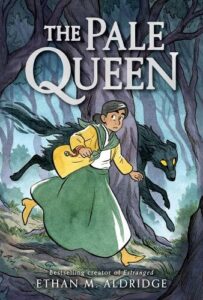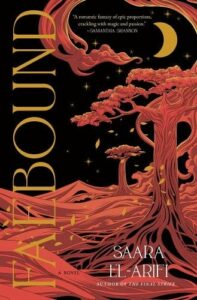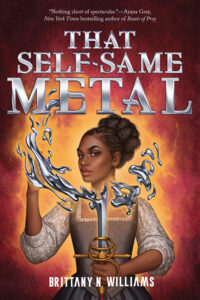Buy this from Bookshop.org to support local bookstores and the Lesbrary!
I just want to bask for a moment in the reality that we live in a time where an author can go to a major publisher and say, “Here’s my pitch for a book: a sapphic gothic romance graphic novel for middle schoolers” and get a yes. I’m so glad that we do, because I loved this book. The artwork is gorgeous, especially the landscapes that establish the setting. It also perfectly captures a dark fairy tale tone, both with the artwork and the references to folklore.
This is about Agatha, a girl in a small town who has always dreamed of becoming an astronomer. When she meets a mysterious woman called the Lady of the Hills, she’s given a hagstone that leads her into a secret, magical realm. She’s delighted by being able to visit this world and befriends one of the Folk of the Hills, but when she makes a new friend (and crush) in town, the Lady grows jealous and vengeful.
My only complaint with this is the romance happens very quickly, but this is a one-volume graphic novel, so it kind of has to. The Pale Queen really feels like a classic fairy tale/folk tale, including the favours that Agatha has to do for the Lady of the Hills, like telling a story to a troll to stop him from waking up and destroying the town, or guarding a flower that only blooms when the full moon is directly overhead.
This reminded me of Other Ever Afters: New Queer Fairy Tales by Mel Gillman, both in terms of the art (which I love) and the feeling of a classic fairy tale. It makes me very happy to see both kids’ books and fairy tales become more inclusive of queer people. I highly recommend this one.





